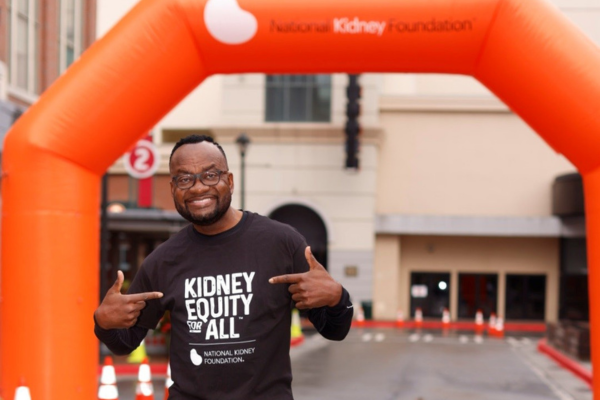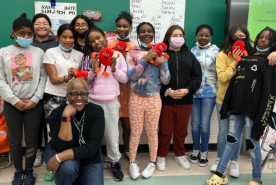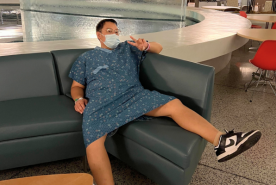June 04, 2024
Unfiltered Story follows the journey of one person over time whose life was impacted by kidney disease. In this edition, we follow Anthony Tuggle as he readjusts to life on dialysis while searching for a living kidney donor. We recommend reading Part 1 before continuing.
In November 2023, Anthony caught a mild illness. As a transplant recipient, even a minor infection can cause serious issues because the body's immune system is lowered to maintain the transplant. With help from a nephrologist, these issues are often successfully treated. Other times, the body’s reaction to the infection and damage to the kidney cause the transplant to fail.
For Anthony, this marked the start of his kidney transplant rejection.
Losing His Transplant
Anthony had similar illnesses before, but this one felt different.
"I felt off. I'm very aware that changes to my health could be caused by declining kidney function so I went to my nephrologist," Anthony said. "Testing revealed that my creatinine was high. My nephrologist made some suggestions and started monitoring my kidney function more closely."
Nothing worked. By early 2024, Anthony's nephrologist referred him to a transplant center. Beginning the transplant waitlist evaluation for a second time transported Anthony back over twenty-five years ago to when he first learned his kidneys failed.
"I was disappointed but focused on my goal to get a preemptive transplant before this one failed," said Anthony. "I started searching for a living kidney donor as I went through the waitlist evaluation."
Getting a transplant before starting dialysis comes with many benefits, like a lower risk of transplant rejection. It may also help people avoid health problems associated with dialysis, like high blood pressure.
Learn more about preemptive kidney transplants.
Crashing into Dialysis
In March, Anthony's plan to get a preemptive transplant was suddenly dashed.
"I ended up in the emergency room with kidney failure," said Anthony. "I had a catheter placed for emergency hemodialysis and began discussing next steps with my doctor."
When Anthony's kidneys first failed, he spent fifteen months in-center hemodialysis before receiving his transplant. This time, he wanted to do dialysis at home.
"I was considering peritoneal dialysis (PD). My healthcare team did a great job reinforcing why they thought it would be the right fit for me. They felt it was the best solution for me based on my lifestyle," said Anthony. "After careful consideration, I decided to pursue it."
While Anthony's PD catheter healed, he headed back to in-center dialysis.
"I went three days a week for 3 to 4 hours. Going through that experience again was depressing but I knew it was only short term," Anthony said. "My peritoneal dialysis access is now healed and I'm doing treatments at home by myself. I feel like it's given me a sense of control back."
Learn about the different types of dialysis.
Finding a Silver Lining
Now that Anthony has settled into his new routine, he can reflect on how difficult the past few months really were.
"I was mad and disappointed when my transplant failed. I took all my medications, got regular checkups, and lived a healthy lifestyle. I was doing everything in my power to keep the transplant," Anthony said. "My nephrologist told me that a kidney transplant from a deceased donor lasts around twelve to fifteen years. Mine last twenty-five. Knowing it lasted almost twice as long as predicted helped but the support from my network made the difference.”
The outpour of support from family, friends, and coworkers kept Anthony positive and reminded him not to give up.
"My passion is helping people. I can do that by sharing my story and raising awareness about kidney disease. I can educate people about their dialysis treatment options and encourage more people to learn about living kidney donation,” said Anthony. “This is crucial, especially within the Black and Brown communities, where there is a disproportionate amount of kidney disease."
If Anthony can change one person's life by sharing his story, he believes his fight with kidney disease will have been worth it.
“Learn more on kidney.org. Reach out to your local NKF office. Kidney disease can feel very lonely but you don't have to do this by yourself. Think of the NKF as part of your family," Anthony said. "They are there to help you every step of the way."









